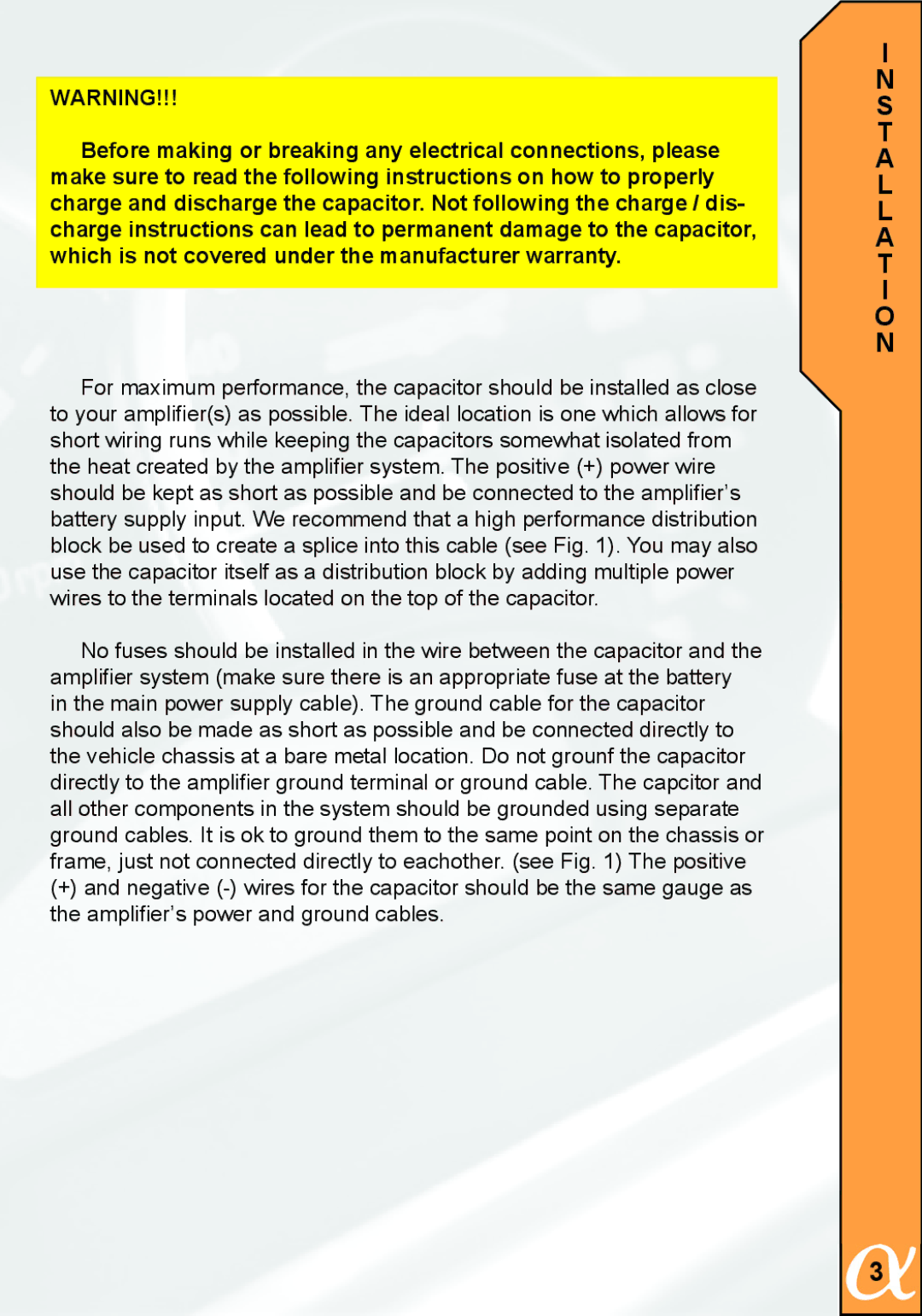
| I | |
| N | |
WARNING!!! | ||
S | ||
Before making or breaking any electrical connections, please | T | |
A | ||
make sure to read the following instructions on how to properly | L | |
charge and discharge the capacitor. Not following the charge / dis- | L | |
charge instructions can lead to permanent damage to the capacitor, | A | |
which is not covered under the manufacturer warranty. | T | |
| I | |
| O | |
| N |
For maximum performance, the capacitor should be installed as close to your amplifier(s) as possible. The ideal location is one which allows for short wiring runs while keeping the capacitors somewhat isolated from the heat created by the amplifier system. The positive (+) power wire should be kept as short as possible and be connected to the amplifier’s battery supply input. We recommend that a high performance distribution block be used to create a splice into this cable (see Fig. 1). You may also use the capacitor itself as a distribution block by adding multiple power wires to the terminals located on the top of the capacitor.
No fuses should be installed in the wire between the capacitor and the amplifier system (make sure there is an appropriate fuse at the battery in the main power supply cable). The ground cable for the capacitor should also be made as short as possible and be connected directly to the vehicle chassis at a bare metal location. Do not grounf the capacitor directly to the amplifier ground terminal or ground cable. The capcitor and all other components in the system should be grounded using separate ground cables. It is ok to ground them to the same point on the chassis or frame, just not connected directly to eachother. (see Fig. 1) The positive
(+)and negative
3
